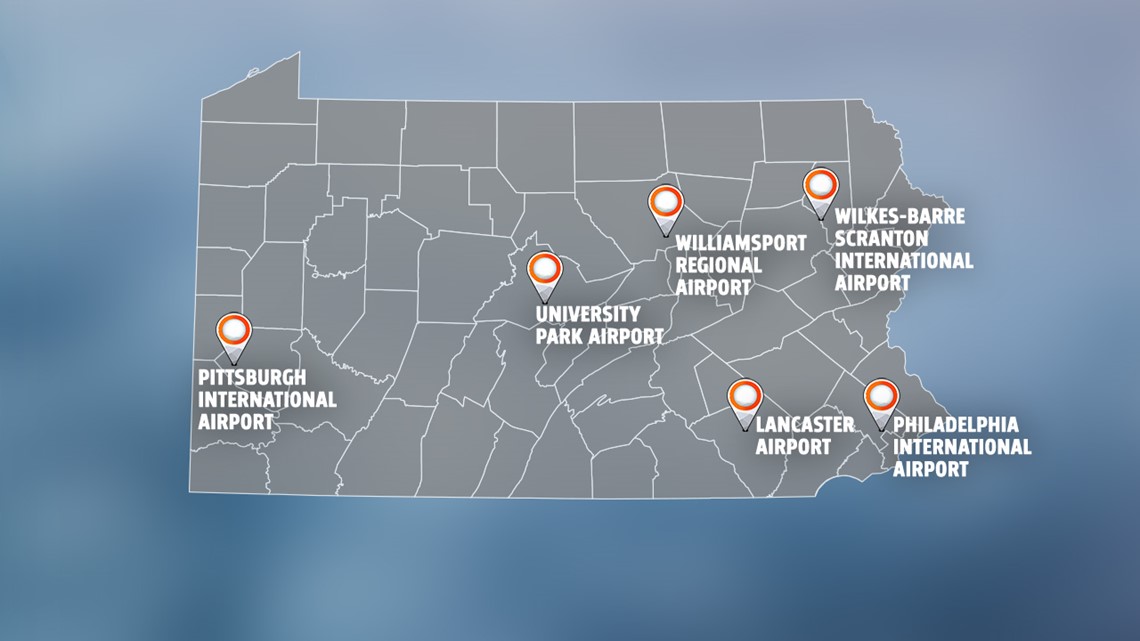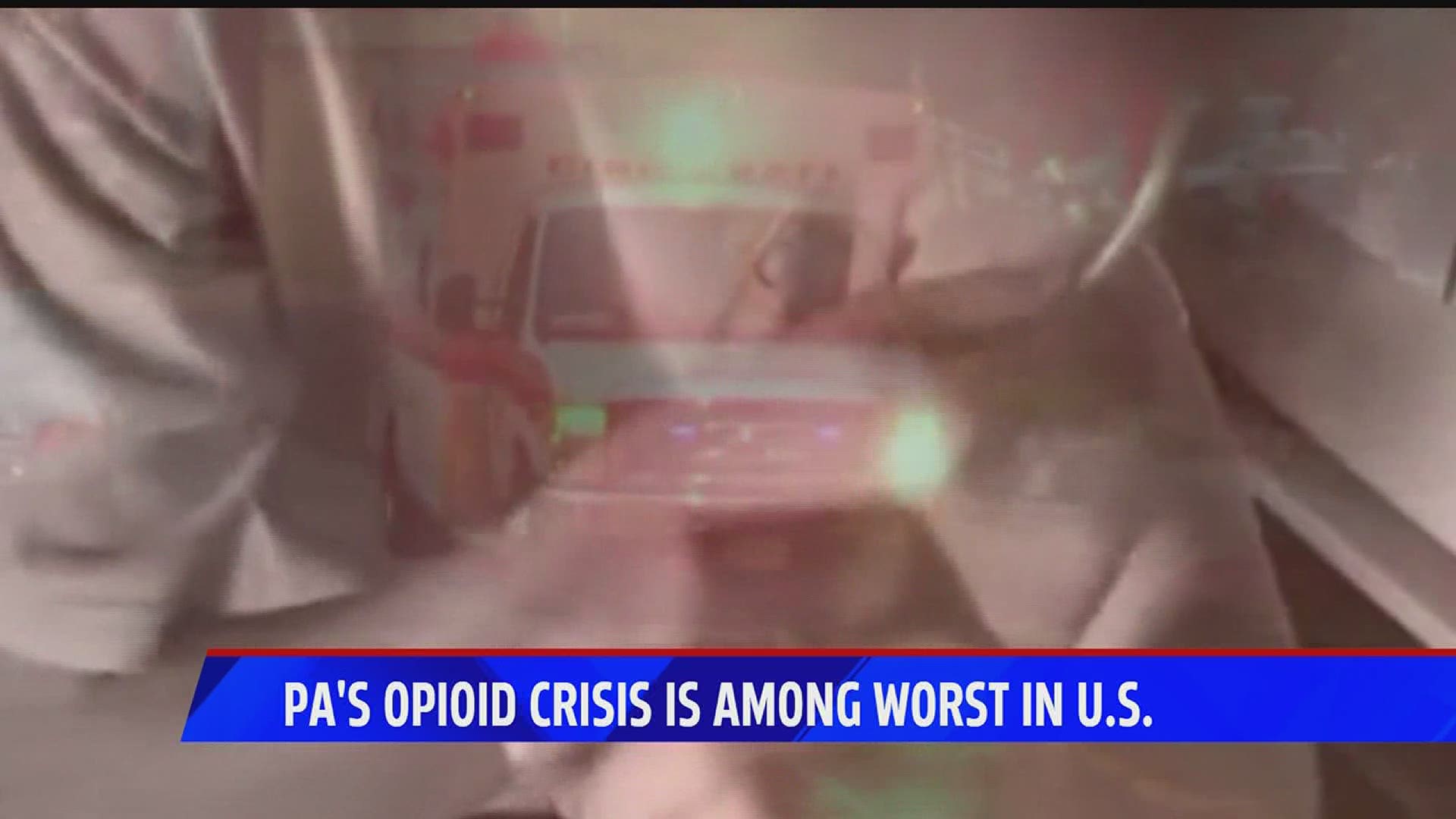PENNSYLVANIA, USA — It's no secret Pennsylvania has one of the worst opioid problems in the country.
But the state continues its efforts to save as many lives as possible.
In 2017, the number of drug overdose deaths per 100,000 people was twice as high as the national average, or 28,400 total deaths.
On Thursday, The Pennsylvania Department of Health announced it would start supplying free kits of Narcan, the overdose-reversal drug, at airports in the Commonwealth.
Officials at Harrisburg International Airport told FOX43 there were two emergencies in 2019 that required Narcan.
Under the new policy at the airport, first responders will handle the kits, and will keep them stored in AED machines.
The kits are being provided to airports marked on the map below:


Pennsylvania Governor Tom Wolf declared a state opioid disaster at the start of 2018. It consists of 13 initiatives, including the Pennsylvania Emergency Management Agency to create an opioid command center, where state agencies can coordinate resources and information to help those in need.
The declaration, last renewed in January, has to be renewed every three months, due to the limits under the state Constitution.
RELATED: Attorney General announces $48 Billion opioid epidemic deal with 5 companies, but more work is ahead
The epidemic is particularly bad in Philadelphia, where more than 1,110 people died from opioid-related overdoses in 2018, according to data from the Philadelphia Department of Health. That’s down slightly from 2017, but the overall rate has skyrocketed in the last five years.
Use of other drugs, like cocaine and methamphetamine, is also rising. Overdose-related deaths associated with those drugs more than doubled between 2016 and 2017.
That's why organizers with The Safehouse Project are planning to open the country's first safe-injection site in Philadelphia, possibly as early as next week.
Safehouse has been in a legal battle with the U.S. government for years. On Tuesday, a federal judge ruled Safehouse's proposed safe-injection site did not violate the U.S. Constitution because the point is to save lives, not encourage illegal drug use.
A safe injection site is a legally sanctioned facility where someone can consume illegal and deadly drugs they got off the street, such as heroin, while a medical professional watches over them. Those doctors or nurses can revive the user if they overdose, and access treatment. Additionally, users have access to clean, sterilized needles, which would allow them to avoid infectious diseases like Hepatitis C and even HIV.
In November, 2019, the Pennsylvania Medical Society endorsed safe-injection sites as a way to study their effectiveness.
“The opioid epidemic is the biggest public health crisis we’ve faced as a state in decades,” said PAMED President Lawrence John, MD. “We owe it to those suffering from the disease of addiction to carefully examine proposals that may reduce harm and buy time for them to get into treatment.”
The U.S. Attorney representing the Trump Administration appealed the Middle District judge's ruling on Thursday.
These are big steps leaders in the state are taking to address the crisis, and the PA Department of Health is always encouraging people to have Narcan or Naloxone on hand.
In January, DOH officials handed out free naloxone kits at the Pennsylvania Farm Show in Harrisburg.
In September, 2019, the department distributed thousands of kits at 95 locations in Pennsylvania for two days within two weeks of each other.
Naloxone kits can also be purchased at most pharmacies.
Since the peak of the crisis, overdose deaths in the Commonwealth have been decreasing.
The U.S. Drug Enforcement Administration found eleven counties in Southwestern PA, which had the highest overdose rates in the state, dropped by 41% in 2018, compared to the year before. The DEA report also found the number of overdose deaths in the state dropped by 18%.
Pennsylvania has dedicated $5.4 million to Narcan and Naloxone distribution for 2020.

